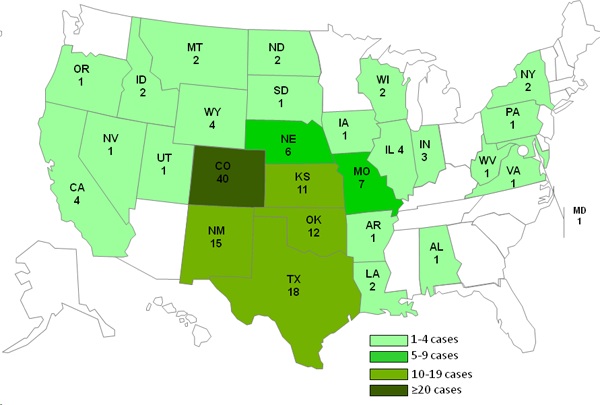DHS seeks 24-hour disease notification service
The US Department of Homeland Security (DHS) is asking for bids on a 24/7 service to provide global data on disease outbreaks and other biologic threats, the agency said in a release this week.
The National Biosurveillance Integration Center within the DHS's Office of Health Affairs (OHA) "requires a real-time, open source, biosurveillance data feed to support mission objectives of providing earlier warning and enhanced situational awareness for biological threats of national concern," the solicitation notice said.
The feed will continually provide information to the DHS from at least 25,000 publicly available Web sites in at least five languages on both human and animal diseases. Content will be updated hourly, at a minimum. It will be delivered via e-mail or RSS feed, the DHS said.
The agency will award the contract for 1 year, with a possible 1-year extension.
Sep 3 DHS notice
'Bible Belt' in the Netherlands hit hard by measles
More than 1,200 cases of measles have been reported in the Netherlands since late May of this year despite overall vaccination coverage of more than 95%, says a report in today's Eurosurveillance. Most cases in the current outbreak are in orthodox Protestants, a large portion of whom reject vaccinations on religious grounds.
Of the 1,226 cases reported from May 27 to Aug 28, 176 (14.4%) involved complications, including pneumonia (90), otitis media (66), and encephalitis (1). Hospitalization was required in 82 cases (6.7%), but no patients died. Patient age ranged from under 1 year to 65 years, with a median of 10 years and a majority (717 cases [58.5%]) aged 4 to 12 years.
The large majority of cases occurred in persons who were unvaccinated (1,174 of 1,217 [96.5%] with known vaccination status).
Most patients were orthodox Protestant (1,087 of 1,145 [91.7%] with information available), a close-knit group of about 250,000 people in the country spread across the southwest-to-northeast corridor known as the Bible Belt. According to the article, refusal of vaccination in the group is based on a belief in predestination and "the idea that people should not interfere with divine providence."
The source of the infection remains unknown, with the first reported case occurring in a child who had not traveled abroad.
The Netherlands has, since 1987, offered vaccination against measles, mumps, and rubella (MMR) in a two-dose schedule given at age 14 months and 9 years. In 2012, MMR coverage overall was 96% for the first dose and 93% for the second.
The most recent large measles outbreak in the country's Bible Belt occurred in 1999-2000 and involved more than 3,200 cases. An even larger number of cases is expected in the current outbreak, especially now that the school year is beginning, according to the article.
Sep 5 Eurosurveill article













